Filter by
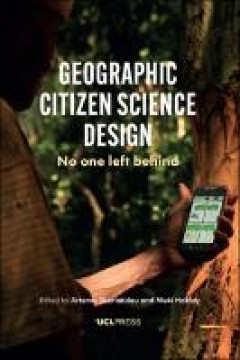
Geographic Citizen Science Design : No one left behind
Little did Isaac Newton, Charles Darwin and other ‘gentlemen scientists’ know, when they were making their scientific discoveries, that some centuries later they would inspire a new field of scientific practice and innovation, called citizen science. The current growth and availability of citizen science projects and relevant applications to support citizen involvement is massive; every cit…
- Edition
- -
- ISBN/ISSN
- 9781787356122
- Collation
- 365p. ; ill.
- Series Title
- -
- Call Number
- 303.483 ART g
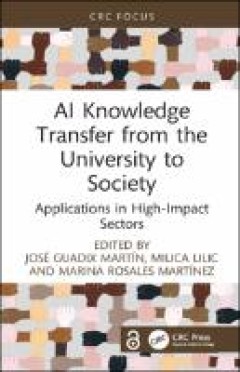
AI Knowledge Transfer from the University to Society : Applications in High-I…
AI Knowledge Transfer from the University to Society: Applications in High-Impact Sectors brings together examples from the "Innovative Ecosystem with Artificial Intelligence for Andalusia 2025" project at the University of Seville, a series of sub-projects composed of research groups and different institutions or companies that explore the use of Artificial Intelligence in a variety of high-im…
- Edition
- -
- ISBN/ISSN
- 9781003276609
- Collation
- 148p. ; ill.
- Series Title
- -
- Call Number
- 006.3 JOS a
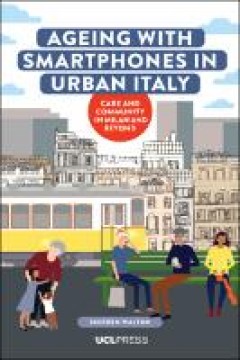
Ageing with Smartphones in Urban Italy : Care and community in Milan and beyond
‘Who am I at this (st)age? Where am I and where should I be, and how and where should I live?’ These questions, which individuals ask themselves throughout their lives, are among the central themes of this book, which presents an anthropological account of the everyday experiences of age and ageing in an inner-city neighbourhood in Milan, and in places and spaces beyond.Ageing with Smartpho…
- Edition
- -
- ISBN/ISSN
- 9781787359710
- Collation
- 188p. ; ill.
- Series Title
- Ageing with Smartphones
- Call Number
- 305.260945211 SHI a
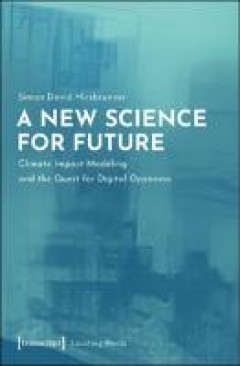
A New Science for Future : Climate Impact Modeling and the Quest for Digital …
Building on concepts from Science & Technology Studies, Simon David Hirsbrunner investigates practices and infrastructures of computer modeling and science communication in climate impact research. The book characterizes how scientists calculate future climate risks in computer models and scenarios, but also how they circulate their insights and make them accessible and comprehensible to others…
- Edition
- -
- ISBN/ISSN
- 9783839452653
- Collation
- 186p. ; ill.
- Series Title
- -
- Call Number
- 551.5 SIM a

We used to wait : music videos and creative literacy
An investigation of music videos as a form, a practice, and a literacy.Music videos were once something broadcast by MTV and received on our TV screens. Today, music videos are searched for, downloaded, and viewed on our computer screens—or produced in our living rooms and uploaded to social media. In We Used to Wait, Rebecca Kinskey examines this shift. She investigates music video as a form…
- Edition
- -
- ISBN/ISSN
- 9780262526920
- Collation
- ix, 91 p. : bnw, ill.
- Series Title
- -
- Call Number
- 791.456578 KIN w
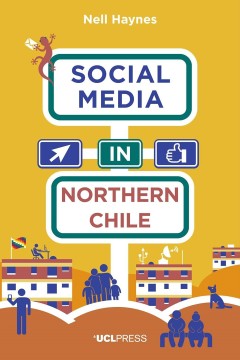
Social media in northern Chile : posting the extraordinarily ordinary
Based on 15 months of ethnographic research in the city of Alto Hospicio in northern Chile, this book describes how the residents use social media, and the consequences of this use in their daily lives. Nell Haynes argues that social media is a place where Alto Hospicio’s residents – or Hospiceños – express their feelings of marginalisation that result from living in city far from the na…
- Edition
- -
- ISBN/ISSN
- 9781910634592
- Collation
- xii, 178p.: ill.
- Series Title
- -
- Call Number
- 302.2310983 SOC h
Curriculum and learning for climate action : toward an SDG 4.7 roadmap for sy…
Curriculum and Learning for Climate Action offers researchers, practitioners, donors, and decisionmakers insights into entry points for education systems change needed to reorient human society’s relationship with our planetary systems.; Readership: All interested in Sustainability, International Education, Environmental Education will find this book useful. This includes researchers, student…
- Edition
- Vol.5
- ISBN/ISSN
- 9789004471818
- Collation
- xxxi, 368 p.
- Series Title
- IBE on Curriculum, Learning, and Assessment, 5
- Call Number
- 333.7071 IYE c
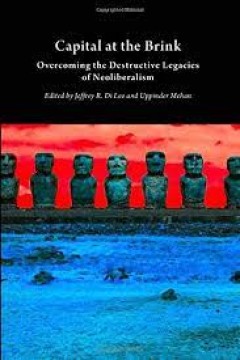
Capital at the brink : overcoming the destructive legacies of neoliberalism
Capital at the Brink reveals the pervasiveness, destructiveness, and dominance of neoliberalism within American society and culture. The contributors to this collection also offer points of resistance to an ideology wherein, to borrow Henry Giroux’s comment, “everything either is for sale or is plundered for profit.” The first step in fighting neoliberalism is to make it visible. By discu…
- Edition
- -
- ISBN/ISSN
- 9781607853060
- Collation
- 277p. ; ill.
- Series Title
- -
- Call Number
- 320.51 JEF c
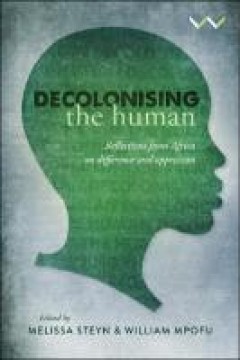
Decolonising the Human : Reflections from Africa on difference and oppression
"Decolonising the Human examines the ongoing project of constituting ‘the human’ in light of the durability of coloniality and the persistence of multiple oppressions. The ‘human’ emerges as a deeply political category, historically constructed as a scarce existential resource. Once weaponised, it allows for the social, political and economic elevation of those who are centred within it…
- Edition
- -
- ISBN/ISSN
- 9781776146529
- Collation
- 264p. ; ill.
- Series Title
- -
- Call Number
- 306.0967 MEL d
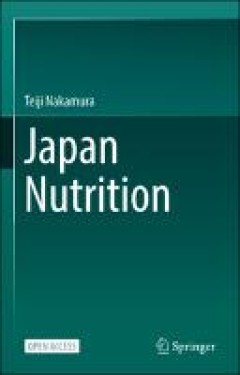
Japan nutrition
This Open Access auto-translation book demonstrates a time series of nutrition improvement in Japan since the introduction of nutrition sciences to Japan about 150 years ago. The chapters present the historical event where nutritional deficiency due to food shortage was improved in almost a century, by the introduction of nutrition policy and practices such as the "Nutrition Improvement Law". T…
- Edition
- -
- ISBN/ISSN
- 9789811663161
- Collation
- xi, 200 p. : ill.
- Series Title
- -
- Call Number
- 572 NAK j
 Computer Science, Information & General Works
Computer Science, Information & General Works  Philosophy & Psychology
Philosophy & Psychology  Religion
Religion  Social Sciences
Social Sciences  Language
Language  Pure Science
Pure Science  Applied Sciences
Applied Sciences  Art & Recreation
Art & Recreation  Literature
Literature  History & Geography
History & Geography